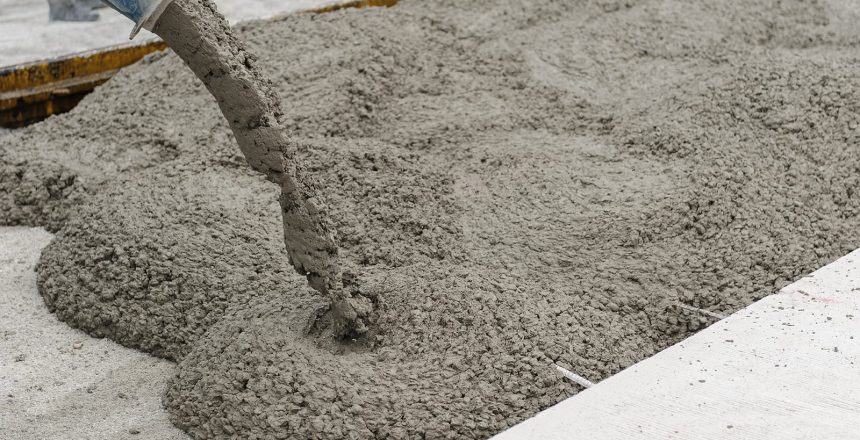Why Pick Our Concrete Solutions: Quality in Every Pour
Why Pick Our Concrete Solutions: Quality in Every Pour
Blog Article
Introducing the Eco-Friendly Advantages of Utilizing Recycled Concrete in Sustainable Construction Practices
In the world of lasting building and construction practices, the usage of recycled concrete stands as a crucial yet commonly undervalued source. Past its standard applications, recycled concrete offers a myriad of green benefits that expand much beyond the confines of conventional building products. From minimizing ecological effect to enhancing cost-efficiency, the implications of integrating recycled concrete in lasting structure practices are considerable. This functional product not only addresses pressing environmental concerns however additionally provides a sensible option to the challenges faced by the construction industry at huge.
Ecological Advantages
By including recycled concrete right into building and construction practices, there is a significant reduction in the requirement for new raw products, leading to preservation of natural sources. Furthermore, the use of recycled concrete lessens the quantity of waste being sent out to garbage dumps, thus lowering ecological pollution and minimizing the stress on garbage dump abilities (Concrete).

Moreover, the manufacturing of standard concrete is a considerable resource of carbon exhausts due to the energy-intensive procedure of cement manufacturing. On the other hand, recycled concrete has a lower carbon impact as it decreases the need for new concrete manufacturing. This reduction in carbon emissions contributes to mitigating environment change and supports sustainable construction methods. Generally, the environmental benefits of utilizing recycled concrete are considerable and play an essential role in advertising environment-friendly construction methods.
Cost-Efficiency
Achieving cost-efficiency is a critical factor to consider when analyzing the application of recycled concrete in building jobs. One of the vital benefits of making use of recycled concrete is its cost-effectiveness contrasted to typical concrete. The manufacturing of recycled concrete involves less power and sources as it uses existing products, lowering the total project costs significantly. Additionally, the availability of recycled concrete locally can even more lower transport expenditures, making it a much more economical selection for construction tasks.
Additionally, making use of recycled concrete can result in financial savings in garbage dump prices by diverting concrete waste from disposal websites. This not just reduces the ecological influence yet also gets rid of the expenses related to waste removal. Furthermore, the resilience and efficiency of recycled concrete approach standard concrete, ensuring that cost financial savings do not jeopardize the high quality of the building and construction.
Sturdiness and Toughness
Thinking about the substantial cost-efficiency benefits of using recycled concrete, it is critical to analyze its longevity and strength in building and construction applications. Recycled concrete offers similar, if not remarkable, durability and stamina read this residential or commercial properties to traditional concrete. Via developments in processing techniques and quality assurance, recycled concrete can meet or exceed the performance criteria of standard concrete. The procedure of recycling concrete entails squashing, sorting, and evaluating old concrete to generate accumulations that can be made use of in brand-new construction projects. These recycled aggregates can providing satisfactory compressive strength, longevity, and long-lasting performance.

Waste Decrease
Effective waste decrease methods play an important duty in the lasting utilization of resources within the building and construction industry. Waste decrease is a key advantage that adds substantially to ecological preservation when it comes to using recycled concrete. Traditional building and construction approaches often produce considerable quantities of waste, specifically in the kind of concrete rubble from demolition sites. By including recycled concrete right into building and construction jobs, this waste is repurposed and drawn away from landfills, reducing the total ecological impact of building tasks.
Recycled concrete not only helps in minimizing the quantity of waste that ends up in garbage dumps but likewise preserves natural deposits by reducing the need for new aggregate products. This process of waste reduction promotes a round economy within the building industry, where products are recycled and reused to develop a much more lasting industry. Furthermore, the use of recycled concrete can cause cost financial savings for building and construction tasks, as it is frequently much more cost effective than sourcing wikipedia reference and delivering brand-new materials. Finally, waste reduction with the utilization of recycled concrete is a crucial element of lasting construction techniques that benefits both the setting and the construction market as a whole.
Power Conservation
When it comes to making use of recycled concrete in construction, significant power financial savings are accomplished contrasted to conventional concrete manufacturing. The process of producing recycled concrete entails crushing and reusing existing concrete products, which eats less power than mining, processing, and transferring raw materials for brand-new concrete manufacturing.
Final Thought
In verdict, the application of recycled concrete in sustainable construction methods offers countless ecological benefits, cost-efficiency, toughness, toughness, waste decrease, and energy conservation. By incorporating recycled concrete right into construction jobs, we can add to a more lasting and ecologically pleasant future. It is necessary for the construction sector to focus on the usage of recycled materials to help decrease the ecological influence of construction activities.
One of the vital advantages of using recycled concrete is its cost-effectiveness compared to typical concrete.Furthermore, the use of recycled concrete can lead to cost savings in land fill expenses by drawing away concrete waste from disposal websites. The toughness and efficiency of recycled concrete are similar to conventional concrete, making sure that cost financial savings do not endanger the quality of the construction.

Report this page